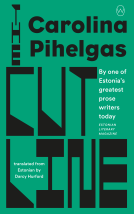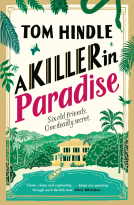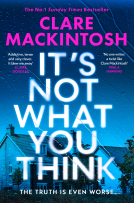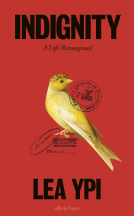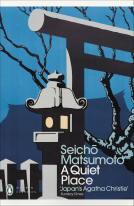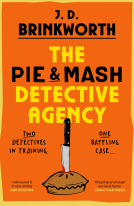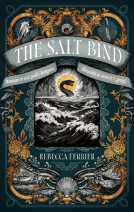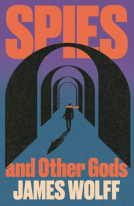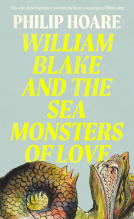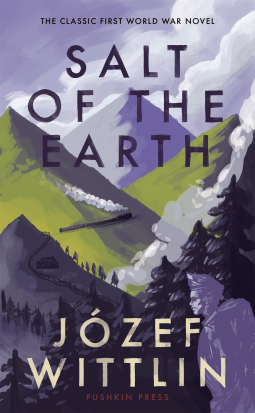
Salt of the Earth
by Jozef Wittlin
This title was previously available on NetGalley and is now archived.
Send NetGalley books directly to your Kindle or Kindle app
1
To read on a Kindle or Kindle app, please add kindle@netgalley.com as an approved email address to receive files in your Amazon account. Click here for step-by-step instructions.
2
Also find your Kindle email address within your Amazon account, and enter it here.
Pub Date 5 Feb 2019 | Archive Date 18 Oct 2018
Talking about this book? Use #SaltOfTheEarth #NetGalley. More hashtag tips!
Description
'Only the villages are asleep, the eternal reservoir of all kinds of soldiery, the inexhaustible source of physical strength'
The villagers of the Carpathian mountains lead a simple life at the beginning of the twentieth century - much as they have always done. They are isolated and remote, and the advances of the outside world have not touched them. Among them - Piotr, a bandy-legged peasant, whose 'entire life involved carrying things'. A notional subject of the Austro-Hungarian Empire, all he wants in life is an official railway cap, a cottage with a mouse-trap and cheese, and a bride with a dowry.
But then the First World War comes to the mountains, and Piotr is drafted into the army. Unwilling, uncomprehending, the bewildered Piotr is forced to fight a war he does not understand - against his national as well as his personal interest.
In a new translation, authorised by the author's daughter, Salt of the Earth is a strongly pacifist novel inspired by the Odyssey, about the consequences of war on ordinary men.
Advance Praise
'One of the great Central European war stories, on a par with the works of Jaroslav Hašek' - Los Angeles Review of Books
'Wittlin's... irony and quiet fury are those of the idealistic ascetic steeped in the Old Testament and the Odyssey. His compassion for the ignorant and lowly of the earth, breathed into his work, imparts to it a glowing poetic quality and a sublimity of soul... It is a volume to be read again and again. It has the satisfying quality of good music.' Virginia Quarterly Review
Available Editions
| EDITION | Other Format |
| ISBN | 9781782274704 |
| PRICE | CA$37.00 (CAD) |
| PAGES | 384 |
Average rating from 13 members
Featured Reviews
I found The Salt of the Earth a captivating read. I loved the narrative prose style and adored the characters, especially Piotr. It is a tale with an important message on war, yet it is also a beautifully written story of a man ripped out of his familiar world and tossed into another. It's a shame Wittlin never got to finish the trilogy, as when the book ended I was sad not to know how things would work out for Piotr. Would he make it through the war and get back home? Overall, I would recommend this book to literary fiction readers as it is a wonderful piece of writing that really deserves more attention.
 AliceMaud M, Reviewer
AliceMaud M, Reviewer
It seems appropriate that I have been reading this book in the run-up to the centenary of the end of World War 1. "Salt of the Earth" is one of the best anti-war - or pacifist - books I have come across. In common with "Under Fire" by Henri Barbusse, this novel is written from a private's point of view, based on the author's own experience of service during the Great War, and shows the how much the heavy physical, emotional and mental challenges of any war can affect ordinary people.
This book is beautifully written and the translator into English is to be congratulated for producing such wonderful prose without a hint that it was originally written in another language.
The Salt of the Earth is described by the publishers as ‘a classic war novel, a powerful pacifist tale about the consequences of war on ordinary men’. Although I had never heard of the book or the author prior to coming across it on NetGalley, I can say that it certainly lives up to that description. If you care to look for equivalents these probably include modern classics such as All Quiet on the Western Front by Erich Maria Remarque, Memoirs of an Infantry Officer by Siegfried Sassoon and Goodbye to All That by Robert Graves. However, because of its mordant humour, dark satire and ridiculing of those in positions of authority, it also made me think of the film Oh! What a Lovely War.
The book satirizes the absurdities of war and the pompousness, self-importance and (often) ineptitude of those in positions of authority. These include: Emperor Franz Joseph, ruler of the Austro-Hungarian Empire, presented as a buffoon-like figure, full of puffed-up pride who shows no hesitation in consigning tens of thousands of his citizens to war and certain death; and Regimental Sergeant-Major Bachmatiuk, ‘the fanatical expert and high priest of Military Discipline’ who sets more store by precise adherence to military regulations than to the welfare of his soldiers.
The only sympathetic character is poor Piotr, something of an ‘Everyman’ figure. An illiterate peasant unable to tell his left from his right, he is nonetheless, like many of his fellow Hutsul villagers, drafted into the army of the Emperor. Piotr is determined to do his duty even though it becomes obvious his trust of those in authority is completely misplaced. They don’t value him as a human being; he’s just another cog in the machine of war.
I mentioned previously the dark humour and satire in the book, exemplified by the following passage: ‘Newspapers throughout the monarchy were publishing enthusiastic reports from the “theatres of war”, which differ from other theatres in that the actors are also the audience and the audience are the actors. Every day, images of their directors and prima donnas of the war looked out at you from the newsprint, profiles of old men in uniform, avidly seeking applause, flaunting their immortality gained at the expense of the deaths of other.’
Because the book is the first in a planned trilogy which was never completed, the reader doesn’t get to learn the fate of poor Piotr, although it is probably correct to assume it wouldn’t have been a happy one (like so many millions of others).
The Salt of the Earth has a fable like quality at time, imaginative descriptive writing and a dark undertone, all of which it seemed to me was rendered in an accomplished manner by the translator.
I received a review copy courtesy of publishers, Pushkin Press, and NetGalley.
 Mandy J, Reviewer
Mandy J, Reviewer
First published in 1936, this little known classic of war literature now has a new translation, which will hopefully bring the novel to a wider readership, because, although it has some faults it really is a small gem and deserves to be better known. Jozef Wittlin was a Polish writer (1896-1976) and intended Salt of the Earth to be the first volume of a trilogy, but he never completed it. It’s a biting satire of the absurdities of war, and the ineptitude of those at the top of the military hierarchy, who give little thought to the soldiers they are sacrificing. The novel starts with a remarkably powerful prologue giving a vivid overview of mobilisation in the Austro-Hungarian Empire in 1914, and then narrows its focus to Piotr Niewiadomski, an illiterate railway worker who is drafted into the Imperial Army although he has no understanding of what the war is all about. His often naïve and bewildered outlook is compassionately conveyed and the reader soon feels great sympathy for him as he gets caught up in events way beyond his comprehension. I found the novel at its best when concentrating on Piotr in the first half, as the second half becomes increasingly blunt about the upper ranks and their stupidity, but nevertheless overall I found the book a worthy addition to World War One literature.
Salt of the earth is a richly detailed, deliberately paced exploration of the inner workings of the men who are swept up in a war created by others. In the first of a classic trilogy of World War 1 literature, we follow a railroad porter from his everyday life to his consignment in the Austro-Hungarian army and the first days of his training.
The book is full of passages that are foreign to a typical American way of thinking and phrasing but are rich and beautiful and thought-provoking. It provides an Eastern European perspective on the war and is a highly worthwhile read.
“‘When a war is over,’ Piotr told himself, ‘the emperors sit down in their palaces, take paper and pencil and count corpses. It would seem to be just like a game of cards; whoever lost more is the loser.’”
Józef Wittlin writes as a sort of Dickensian equivalent for the 20th-century Polish cusp-World-War-I landscape. He focuses very narrowly on the lower class, particularly one man named Piotr Niewiadomski, who are inevitably the ones to pay the debt for the war cries of their leaders.
Wittlin, if I read the translated tone correctly, produces an atmosphere in his book that leaves the reader without a concrete mood for the novel. Often, he makes fun of his characters and their idiosyncrasies and immediately follows with a depressing bout of description that leaves the reader without a safe feeling for any given character. He almost never settles on a formal tone for the events in the book, which should garner a shadow over them, and he treats the most serious of characters and incidences, such as any part with the ruling class (or those with authority) and the pivotal events that happen to propel the war into action, with such a humor as to muddle the reader’s consciousness.
It is an unfortunate tragedy that Wittlin passed away before finishing this set of stories. They would have added a finished masterpiece to world literature’s 360° view of the First World War. As it is, we shall only have to settle for the first piece.
Readers who liked this book also liked:
Philip Hoare
Arts & Photography, Biographies & Memoirs, Nonfiction (Adult)
